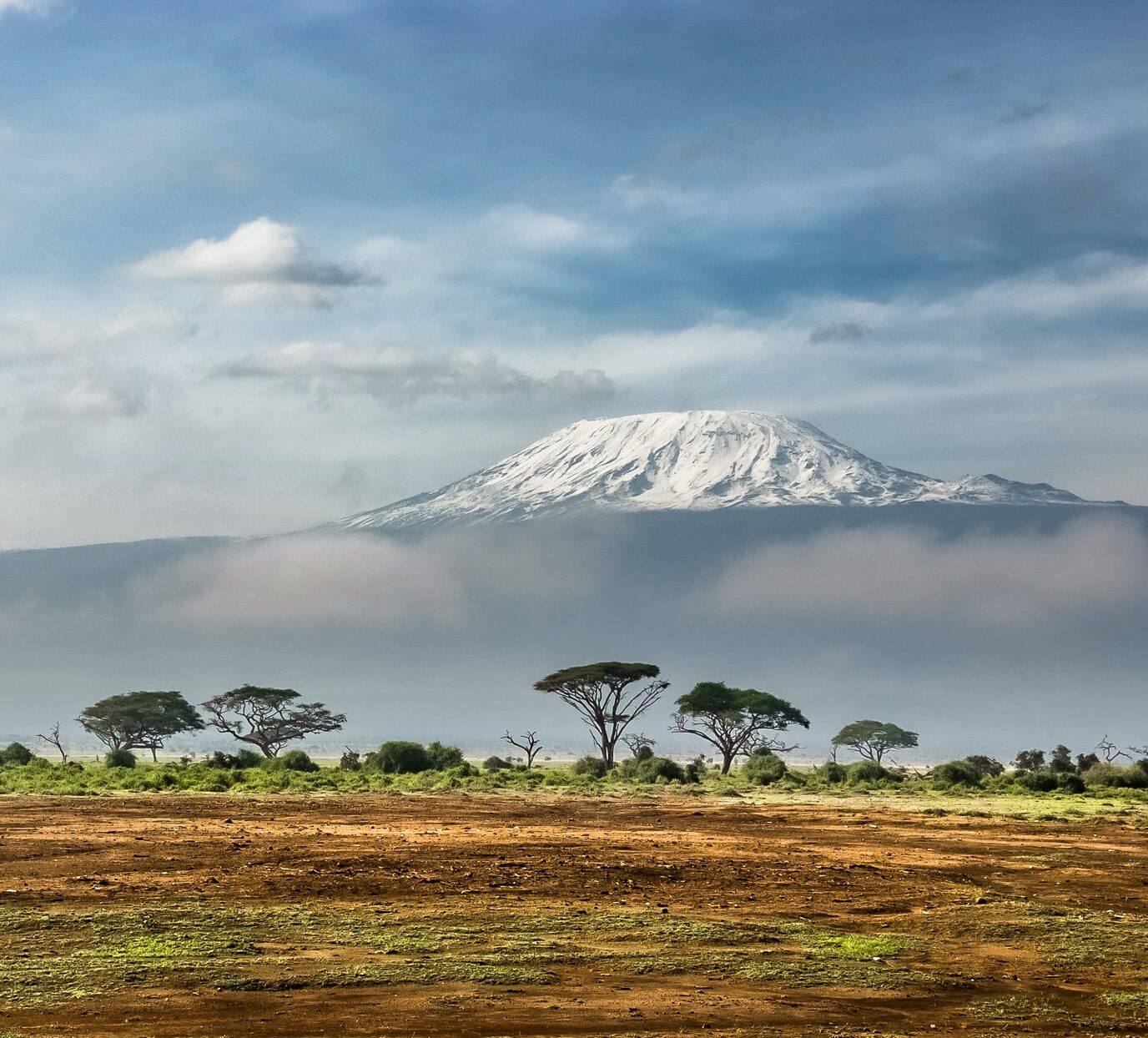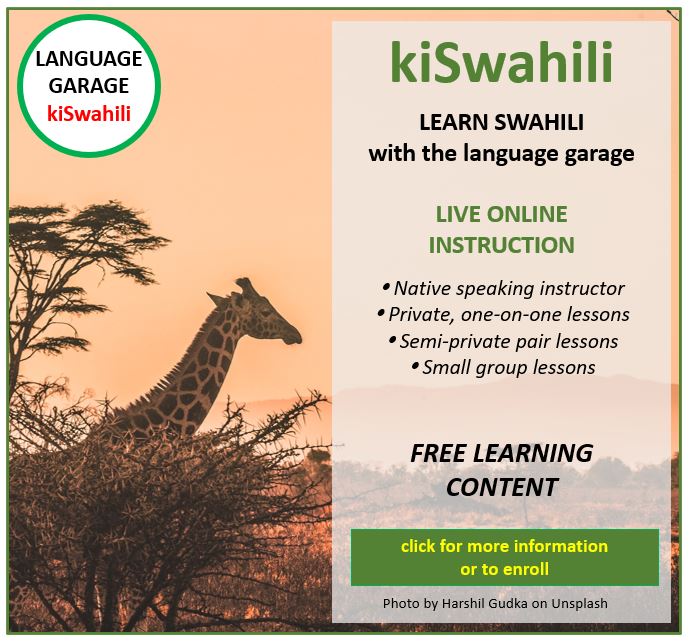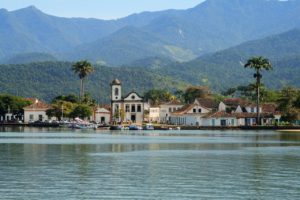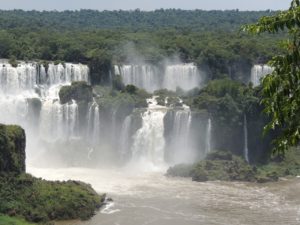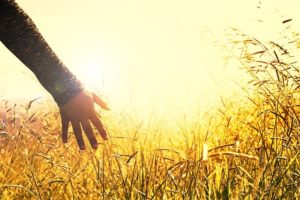Photo by Sergey Pesterev on Unsplash
In this post we’ll learn some vocabulary and expressions that you can use to talk about the natural world.
Maua, Miti, Nyasi, na Hewa safi: Flowers, Trees, Grass, and Fresh Air
Let’s start with some basics of nature that you can find around you even if most of the nature you see is in a park: mti (a tree), ua (a flower), bustani (a garden), nyasi (grass), mmea (a plant), ziwa (a lake), bwawa (a pond), njia (a path/a road), msitu (woods). You’re probably not going to see much wildlife in a park, but if you’d like to know how to talk about the animals you do see, check out this post.
- Kuna miti mingi kwenye bustani.
There are lots of trees in the park. - Tazama ua hilo zuri.
Look at that beautiful flower. - Hebu tuketi kwenye nyasi.
Let’s sit in the grass.
- Hebu tuketi kwenye benchi karibu na bustani.
Let’s sit on the bench next to the garden. - Kuna njia kupitia msitu.
There’s a path through the woods. - Hebu tutembee karibu na bwawa.
Let’s walk next to the pond. - Je, kuna samaki katika ziwa hili?
Are there fish in this lake? - Je, ziwa ni la kina kifupi au kirefu?
Is the lake shallow or deep?
Miti na Mimea: Trees and Plants
No matter where we are, there’s usually some kind of plant life around us, even if it’s in a pot in the corner of your office: mmea wa ndani ya nyumba (houseplant), chungu cha maua (flowerpot), waridi (rose), mwiba (thorn), udongo (soil), jani (leaf), tunda la muoka (acorn), shina (stem), mbegu (seed), nati (nut), kumwagilia mmea maji (to water a plant), kupanda mbegu (to plant a seed), kuchanua; maua huchanua (to bloom; flowers bloom), kukua; mimea kukua (to grow; plants grow).
- Ninahitaji kumwagilia mimea yangu.
I need to water my plants. - Tuna mimea mingi ya ndani ya nyumba.
We have a lot of houseplants. - Chungu hicho cha maua ni kizuri.
That’s a beautiful flowerpot. - Majani ya mmea huo yanageuka kahawia.
That plant’s leaves are turning brown. - Matunda ya muoka yanaanguka kutoka kwenye mti.
Acorns are falling from the tree. - Mawaridi yana miiba kwenye mashina yao.
Roses have thorns on their stems. - Je, mti huo ni marumaru au mwaloni?
Is that tree a maple or an oak? - Miti ya msonobari ni kijani wakati wa baridi.
Pine trees are green in the winter. - Nilipanda mbegu za nyanya kwenye bustani.
I planted tomato seeds in the garden. - Maua huchanua kwenye msimu wa chemchemi.
The flowers bloom in the spring. - Mimea kwenye bustani yako inakua haraka.
The plants in your garden are growing quickly.
Milima, Mito, na Mabonde: Hills, Rivers, and Valleys
Let’s add some more nature vocabulary: kilima (hill), bonde (valley), mto (river), mkondo (stream), maporomoko ya maji (waterfall); shamba, uwanja (field), mwamba (rock), jabali (boulder), kinamasi (swamp).
- Nyumba yetu iko kwenye kilima.
Our house is on a hill. - Tunaishi karibu na mto.
We live next to a river. - Mto unapita haraka hapa.
The river runs quickly here. - Kuna maporomoko ya maji mazuri karibu.
There’s a beautiful waterfall nearby. - Kuna mashamba mengi katika bonde.
There are a lot of farms in the valley. - Kuna mto mdogo kwenye miti karibu na nyumba yetu.
There is a little stream in the woods near our house. - Tulipitia uwanjani.
We walked across the field. - Kuna maua mazuri ya mwitu kwenye uwanja.
There are beautiful wild flowers in the field. - Kuna mawe mengi na miamba kwenye mlima.
There are a lot of rocks and boulders on the hillside. - Barabara hii inapita kwenye kinamasi.
This road goes through a swamp.
Milima na Misitu: Mountains and Forests
If you ever get to the mountains, you may need to say: mlima (a mountain); safu ya mlima (a mountain range); kilele cha mlima (the summit of the mountain); kupanda milimani (to hike in the mountains); kupanda mlima (to climb a mountain); kilele (a peak); mwamba (a cliff); msitu (a forest); kupiga kambi msituni (to camp in the forest); miti ya misonobari (pine trees); miti ya marumaru (maple trees); miti ya mwaloni (oak trees); wanyama pori (wild animals).
- Kuna safu mbili za milima katika nchi hii.
There are two mountain ranges in this country. - Tunaweza kuona milima mizuri kutoka kwa dirisha letu.
We can see beautiful mountains from our window. - Je, kilele cha mlima huu kiko juu kadiri gani?
How high is the summit of this mountain? - Vilele vya mlima vimefunikwa na theluji.
The mountain peaks are covered in snow. - Maporomoko hayo yana urefu gani?
How high are those cliffs? - Ninapenda kupiga kambi msituni.
I like to camp in the forest. - Kuna miti ya misonobari / miti ya marumaru / mwaloni katika msitu huu.
There are pine trees/maple trees/oak trees in this forest. - Je, kuna wanyama pori katika msitu huu?
Are there wild animals in this forest?
Dunia: The World
Let’s finish with some geographical terms that you can use to talk about the natural world. bara (continent), bahari (ocean), baharini (sea), ghuba (bay), pwani (coast), kiziwa (island), jangwa (desert), msitu (jungle), mto wa barafu (glacier), siwa barafu (iceberg), ncha ya kaskazini/kusini (north/south pole), kaskazini/kusini/mashariki/magharibi (north/south/east/west).
- Kuna mabara mangapi?
How many continents are there? - Bahari ni pana na ya kina.
The ocean is wide and deep. - Ninapenda kuogelea baharini.
I love swimming in the sea. - Mto unamwaga ndani ya ghuba kubwa.
The river empties into a big bay. - Tuliendesha kando ya pwani.
We drove along the coast. - Inabidi uchukue feri ili kufika kisiwani.
You have to take a ferry to get to the island. - Jangwa ni joto na kavu.
The desert is hot and dry. - Mimea na wanyama wengi tofauti huishi msituni.
Many different plants and animals live in the jungle. - Mito ya barafu inakuwa ndogo kila uchao.
The glaciers are getting smaller and smaller. - Kuna siwa barafu kwenye bahari karibu na ncha ya kaskazini/kusini.
There are icebergs in the ocean near the north/south pole. - Jua huchomoza mashariki na kuzama magharibi.
The sun rises in the east and sets in the west.
Do you want to learn Swahili?
Check out our other posts on Swahili language, culture, and more. And if you’re looking for convenient and affordable live Swahili lessons with a real teacher, check out The Language Garage Swahili. Our lessons are given online in a virtual classroom, so it doesn’t matter where you live or work. We can come to you. And we have flexible options, with a free trial so that you can decide if there’s a fit. Check us out!
